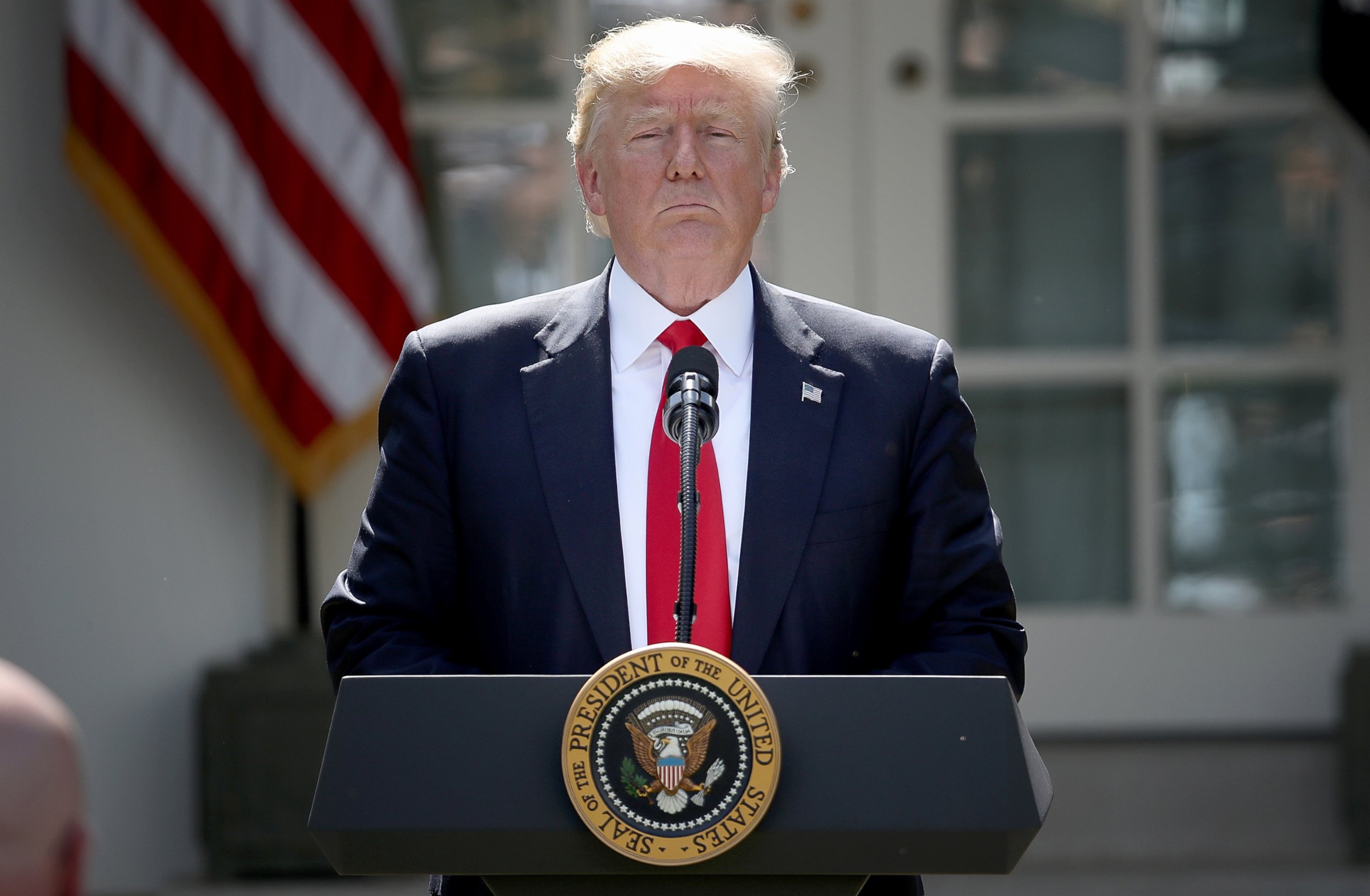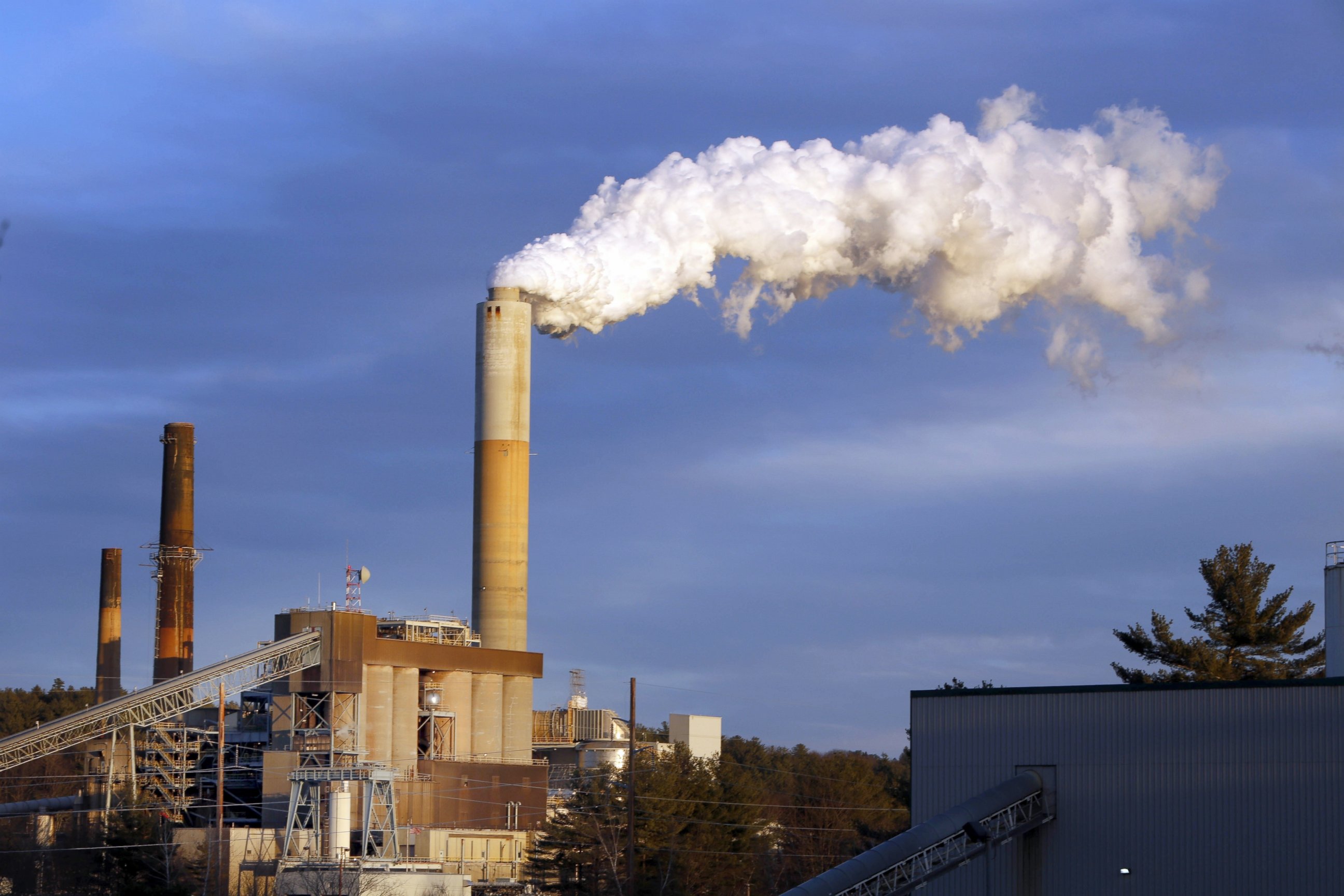Cities and states aim to take up Paris Accord after Trump's withdrawal
At least 68 mayors across the country have vowed to uphold the Paris Accord.
— -- Cities and states throughout the United States are vowing to uphold the obligations of the Paris Climate Agreement despite President Trump's decision to withdraw.
The governors of New York, California and Washington announced in a joint statement Thursday the formation of the U.S. Climate Alliance, a coalition that will convene U.S. states committed to upholding the Paris Climate Agreement and taking "aggressive action on climate change." The governors urged other states to join the alliance as well.
Alongside the state actions, the mayors of 68 cities across the nation who had previously joined the Mayors National Climate Action Agenda also pledged Thursday to adopt the Paris deal themselves. Also known as Climate Mayors, the group "commits U.S. mayors to working together to strengthen local efforts for reducing greenhouse gas emissions and to supporting efforts for binding federal and global-level policymaking," according to its website.
One of those mayors, New York City Mayor Bill de Blasio, said that New Yorkers are already experiencing the extreme effects of climate change, such as hotter summers, more powerful storms and rising seas.
"President Trump can turn his back on the world but the world cannot ignore the very real threat of climate change," De Blasio said. "This decision is an immoral assault on the public health, safety and security of everyone on this planet."
De Blasio said he is committing to honor the goals of the Paris Accord "alongside mayors across the country" and "on behalf of the people of New York City."Several more mayors took to Twitter to vow to uphold the obligations from the Paris Accord.
Former President Obama Thursday urged climate action to be taken up below the national level as well.
"I'm confident that our states, cities and businesses will step up and do even more to lead the way, and help protect for future generations the one planet we've got," he said in a statement after Trump's decision.Although it will be "difficult," progress can be made at the city and state level, said Jamie Henn, co-founder and strategic communications director for 350.org, an international climate campaign nonprofit.
Even before Trump came into power and announced his decision at the White House's Rose Garden Thursday, that process was well underway.

29 states take action
Twenty-nine U.S. states have adopted renewable portfolio standards, which requires them to sell a specified amount of renewable electricity, according to the National Conference of State Legislatures.
There is "political will" and "preference stated by voters for more states to adopt those standards,” said Rob Godby, the director of the Center for Energy, Economics and Public Policy at the University of Wyoming.
Godby noted that the withdrawal from the agreement shouldn't come as a surprise in light of Trump's previous promises of putting "America first."
"I think our energy policy was pretty much set on election night -- with the election of the Trump administration. That set in motion an expected policy changes.”
He added that while cities and states can clearly implement their own policy standards, the ultimate decision comes down to the people. "Really, it depends on what users of energy choose to do -- not producers -- because it's the users of energy that potentially generate CO2 [carbon dioxide] and natural gasses if they choose to," he said.
"Wyoming won't continue to produce as much coal as it did in the past if demand goes down from the states that consume it," Godby said of the largest coal-producing state in the United States.

Addictive fossil fuel
A national poll conducted by the Yale Program on Climate Communication found that by more than 5 to 1, voters said the United States should participate in the Paris Agreement. The poll, which surveyed participants from a national sample, also found that about 47 percent of Trump voters said the United States should participate in the Paris Accord, compared with about 28 percent who said it should not.
"This is an all-hands-on-deck moment, and without the hands of the federal government, it takes the rest of us to spring into action," 350.org’s Henn said.
To meet the emissions reductions commitments agreed to in the Paris Accord, local and state governments will have to wean themselves off fossil fuel use and rapidly adopt clean energy.
The Obama administration sought to create a federally driven plan to push that effort, but now the process will be led bottom up as long as the Trump administration continues on its existing course.
The makeup of the energy business "isn't determined by the White House," Henn said. "It is determined by the cities and states who are the largest purchasers of electric power."
Local governments and institutions can play a "large role" in driving forward renewable energy, including by focusing on solar power.
But ultimately, Henn said, it comes down to electing officials who prioritize climate action.
"Elections matter, to state the obvious,” he said, "so our movements needs to do a better job at electing climate champions at all levels for government."




